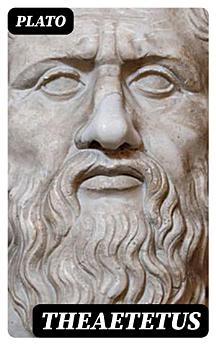关于此电子书
Plato's "Theaetetus" is a profound dialogue that delves into the nature of knowledge, probing the question, "What is knowledge?" Through an engaging conversation between Socrates and the young mathematician Theaetetus, Plato presents a captivating exploration of epistemology, offering three notable definitions of knowledge: perception, true belief, and justified true belief. The narrative is marked by its Socratic method, characterized by dialectical reasoning and critical interrogation, which invites readers into the philosophical inquiry that remains relevant in contemporary discussions of knowledge and belief. Plato, a pivotal figure in Western philosophy, deeply influenced by Socratic dialogues and the intellectual currents of Ancient Greece, penned "Theaetetus" during a period of rich philosophical discourse in Athens. His background as a student of Socrates and his engagement with mathematics and metaphysics shaped his exploration of knowledge, revealing the tensions between perception and reality. Plato's philosophical ambitions aimed not only to define knowledge but also to encourage readers to critically examine their own epistemic foundations. "Theaetetus" is an essential read for anyone intrigued by the philosophical pursuits of understanding knowledge in its multifaceted dimensions. Scholars, students, and casual readers alike will find value in Plato's rigorous examination of epistemology, which resonates across millennia, bridging ancient philosophy with modern thought. This dialogue is not merely a historical artifact; it is a vital text that continues to challenge and inspire philosophical inquiry.
作者简介
Plato, the eminent philosopher of ancient Greece, lived from approximately 428/427 BCE to 348/347 BCE. As a disciple of Socrates and a mentor to Aristotle, Plato's contributions laid the groundwork for Western philosophy and science. His works are written in the form of dialogues, in which characters engage in philosophical discussions, a literary form that he effectively popularized. In 'Theaetetus', one of his prominent dialogues, Plato delves into the nature of knowledge, exploring complex themes such as perception, reasoning, and epistemology. The dialogue presents Socrates in conversation with a young mathematician named Theaetetus, examining the question 'What is knowledge?' This dialogue, like many others penned by Plato, demonstrates his skill in blending dramatic elements with deep philosophical inquiry. Through his Academy in Athens, the first institution of higher learning in the Western World, Plato's influence extended well beyond his lifetime. His philosophical insights continue to be a cornerstone of philosophical education, with enduring relevance to metaphysics, ethics, and epistemology.
为此电子书评分
欢迎向我们提供反馈意见。
如何阅读
智能手机和平板电脑
笔记本电脑和台式机
您可以使用计算机的网络浏览器聆听您在 Google Play 购买的有声读物。
电子阅读器和其他设备
如果要在 Kobo 电子阅读器等电子墨水屏设备上阅读,您需要下载一个文件,并将其传输到相应设备上。若要将文件传输到受支持的电子阅读器上,请按帮助中心内的详细说明操作。







